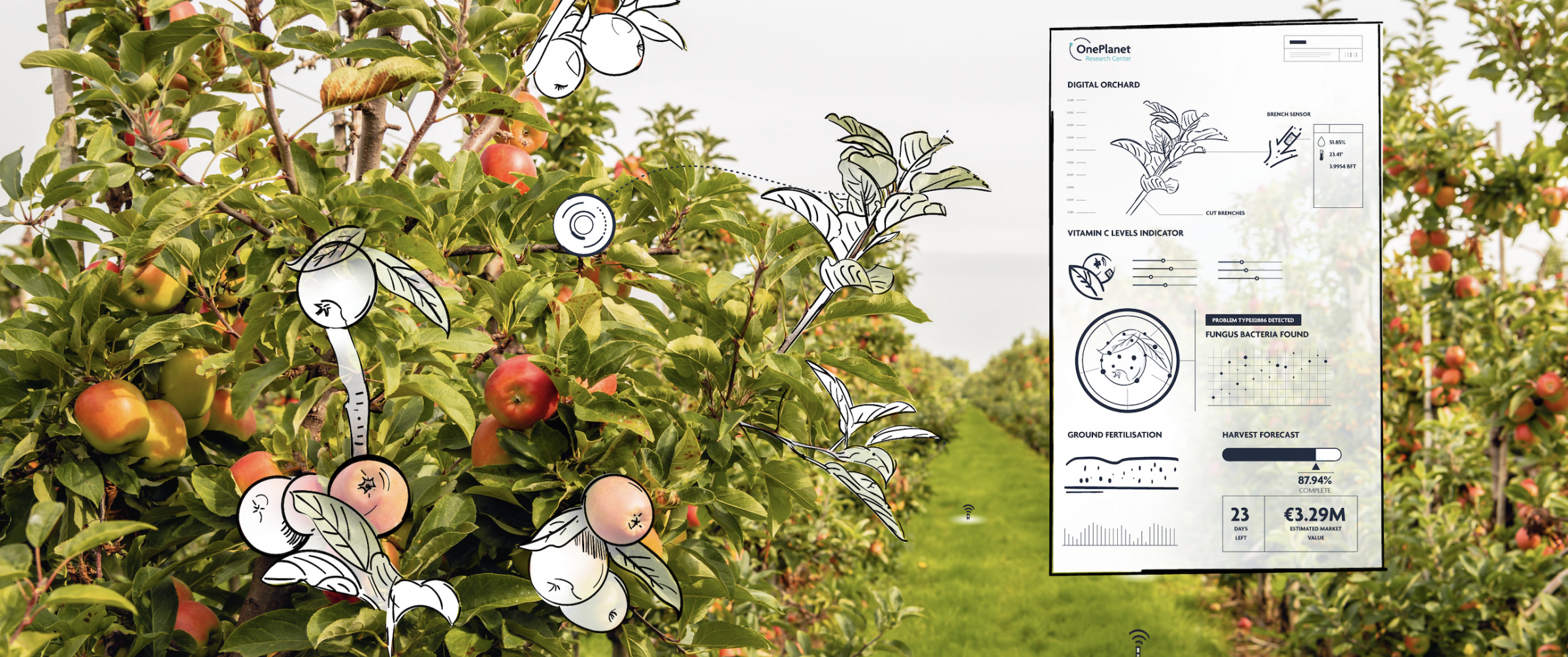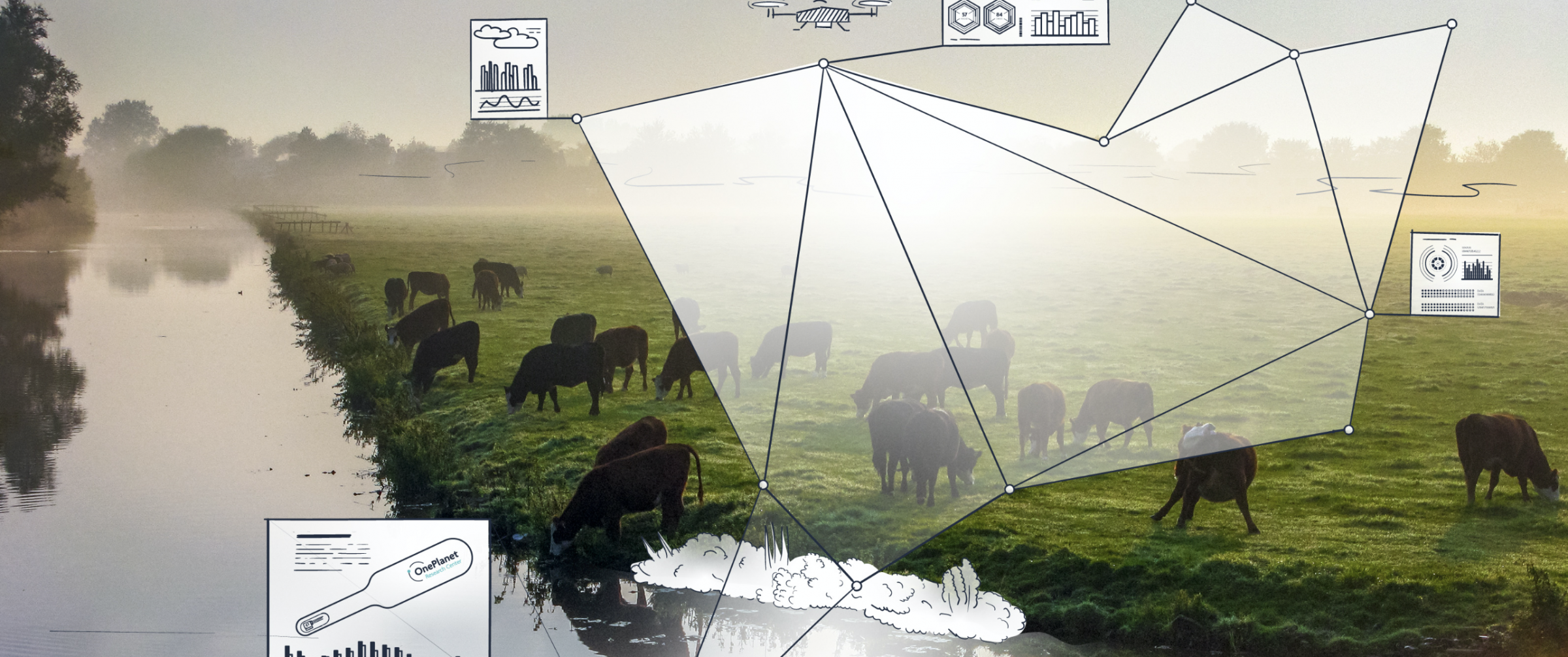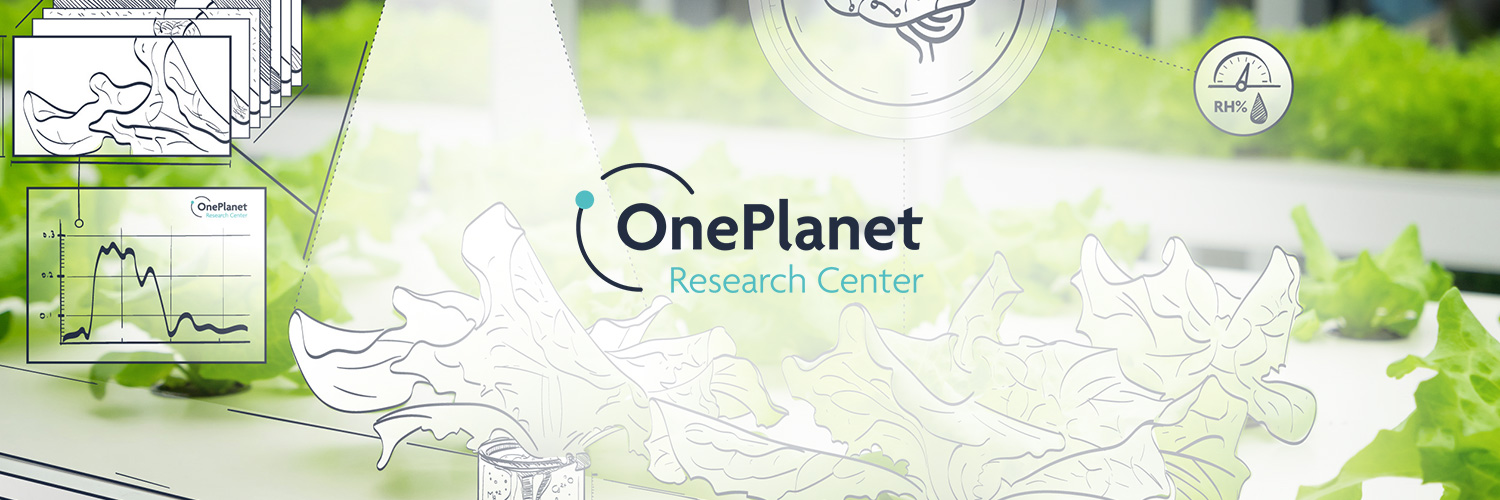OnePlanet Research Center develops innovative sensor and digital technology that helps make food production and processing more sustainable. In order to provide enough food for about 10 billion global citizens by the year 2050, the current food production system must change. Smart sensor and digital technology helps food producers to act quickly and adequately and thus to use (scarce) raw materials and labor accurately in the sustainable production of sufficient global food.
What if.. we could develop smart solutions to allow everyone to have access to healthy and sustainable produced food?
Occupying less space, using less water, less labor, less chemicals – thus making a giant leap in making our system more effective and sustainable at the same time. We need to look at the entire value chain in order to produce 70 % more food, while using half of the resources we do now. Besides just producing more food, we have a responsibility to produce healthy food as well; the world literally needs nourishment. How can we make sure that foods that hit the market provide the healthiest option possible for consumers? An incredible task, but not impossible.
OnePlanet Research Center believes that with its domain expertise within the fields of agriculture & food and its knowledge and skills when it comes to digital innovations, it can make a valuable and sizeable contribution to solutions for this immense challenge.

A digital revolution presenting opportunities
Currently we are finding ourselves in a digital revolution. And this development provides us with a wonderful opportunity. Because by digitalizing, we can “fine regulate”. This means that we can respond very quick and very precise at the right place and time. So instead of fertilizing a whole field, one can work more precise and use less resources while protecting the environment as much as possible. This approach is applicable in various ways throughout agriculture sector. It allows business owners and employees to finetune their approach and use their resources only where it is needed.
The agriculture sector is no stranger to innovations and the integration of technology. One could say that the sector is a so-called “early adopter” of digitalization. This means that policies are often already tailored to technological advancements and the people working in the sector are experienced working with modern technology and open to explore further. This allows OnePlanet to work side-by-side with the sector and make leaps of innovation and progress, together, to make technology work for the agriculture sector and for our planet.
Priorities
OnePlanet Research Center will be focusing on making systems smarter and more sustainable. By focusing on working on a plant or animal specific level, agriculture systems will become more and more precise. This is not just good for the use of resources and the optimalization of crops and products; it has a big impact on animal wellbeing as well. But, in order to achieve such precision levels, one need to know a lot first… and for that we need to measure. The sensing innovations being developed within OnePlanet will allow the sector to measure every fruit tree, every cow; individually.
When we are at a point that we can measure, on the field, in greenhouses, in the stables, we need to make sure all those data points can actually communicate with each other. Right now, systems hardly ever talk with each other. We measure water, energy use, but there is no interaction between those systems and getting those data together and analyzing this, is still in the hands of individuals, of farmers. In order for systems to generate specific and precise advice to the farmer, it needs to communicate and able to learn from different data sets. The goal is to bring data together in a new system that provides the farmer with insights to make smart and sustainable decisions. OnePlanet is even gearing up towards autonomous systems via what we call a “digital twin”. This digital twin is a digital copy of a cow, pig, apple tree or tomato plant and does not just bring together different measurements, it analyzes and learns “on the job” and can even make decisions by itself accordingly.

Application-driven technology and empowerment
The systems mentioned earlier may seem very futuristic and do we even need it? Well, currently it is very hard to duplicate agriculture knowledge and expertise to other parts of the world.
Imagine that in every greenhouse, every orchard, every field, the same quality is being produced. Imagine that farmers have insights into how they can produce better crops or products and how they can successfully invest to make their farm future-proof. In the future farmers could make more profit due to a more effective farm and also see for themselves where they can make extra investments to reduce, for example, emissions.
In the future we would not have send bell peppers to the United States, but we send the autonomous system with Dutch expertise. This way, the bell peppers can be produced with the same quality, while using, for example, minimal energy, water and chemicals. By doing this, we are able to take out the element of cross-continental export which would benefit the environment and thus the planet greatly. Solutions like this can also allow us to start growing agriculture produce in places where the soil is less fertile and that often face food shortages. It will allow us to put the saying “Think global, act local” into practice. Besides this example, OnePlanet is exploring a range of options to shorten value chains to reduce waste, energy and other resources.
To achieve such “moonshots”, we need to always be one step ahead on the integration of technology innovations. OnePlanet will be focusing on innovations for autonomous farming in vertical greenhouses, orchards and animal farms and linking producers with smart factories in which the optimalization of processing and limiting of resources are key.

“If you want to go fast, go alone. If you want to go far, go together.”
In order to make sure we go far, we are actively engaging and collaborating with important stakeholders. Because while technology opens a vast amount of new possibilities, it is never the end-goal. Developing technology that actually responds to the needs of the end-user and the sector, while also looking out for people and planet, is.
In order to understand the market and the needs of the end-user, OnePlanet Research Center always has one foot in the sector and actively engages and collaborates with input dealers, growers, farmers, producers, transport, middlemen and consumers. Together with these parties, knowledge and research institutions, education entities and other (tech) industry, we are creating an ecosystem that allows us to put our efforts where they are really needed and can make an impact.
With support of the province of Gelderland, first pilots are being put in place to measure emissions and air quality and give farmers and policy makers the insights needed to invest and act in order to make sure farms become future-proof and less hazardous for our environment. OnePlanet is also actively collaborating with regional SMEs in the province to further explore possibilities to improve local value chains. The shorter the chain, the more impact it has on not the environment alone, but even on local economies. The goal is to bring healthy and sustainably produce to the consumers of Gelderland and beyond.
OnePlanet has a range of innovation possibilities to offer and is excited to work side by side with all stakeholders to ensure technology works for the agriculture sector, for our health and for our planet. We only have one.